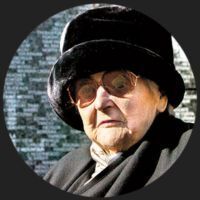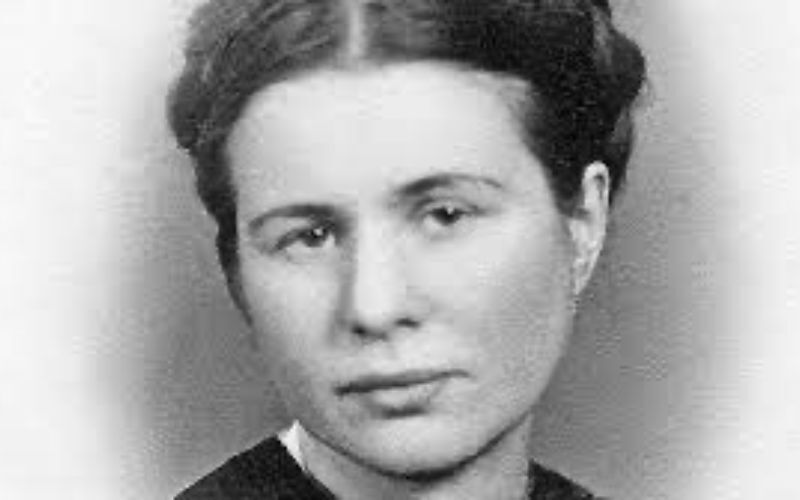Nancy Wake

Nancy Wake, "the White Mouse" and the most decorated woman of the 1939-45 war, disliked people messing around with her life story. Small wonder. It was an extraordinary story and an extraordinary life.
Ms Wake, who has died in London just before her 99th birthday, was a New Zealander brought up in Australia. She became a nurse, a journalist who interviewed Adolf Hitler, a wealthy French socialite, a British agent and a French resistance leader. She led 7,000 guerrilla fighters in battles against the Nazis in the northern Auvergne, just before the D-Day landings in 1944. On one occasion, she strangled an SS sentry with her bare hands. On another, she cycled 500 miles to replace lost codes. In June 1944, she led her fighters in an attack on the Gestapo headquarters at Montlucon in central France.
Work began earlier in August 2011 on a feature film about Nancy Wake's life. Ms Wake, one of the models for Sebastian Faulks' fictional heroine, Charlotte Gray, had mixed feelings about previous cinematic efforts to portray her wartime exploits, including a TV mini-series made in 1987.
"It was well-acted but in parts it was extremely stupid," she said. "At one stage they had me cooking eggs and bacon to feed the men. For goodness' sake, did the Allies parachute me into France to fry eggs and bacon for the men? There wasn't an egg to be had for love nor money. Even if there had been why would I be frying it? I had men to do that sort of thing."
Ms Wake was also furious the TV series suggested she had had a love affair with one of her fellow fighters. She was too busy killing Nazis for amorous entanglements, she said.
Besides, until she led her men into Vichy, the headquarters of the pro-Nazi wartime French government, she believed that her French husband, Henri Fiocca, was still alive. She discovered in Vichy in August 1944 that Henri, a wealthy businessman, had been captured, tortured and executed by the Nazis in Marseille the previous year. He had, until the end, refused to give them any information about his wife, codenamed the White Mouse by the Germans.
Even before she escaped to Britain, through Spain, in 1943 to train as a guerrilla leader, Nancy had been top of the Gestapo's French "wanted" list. With her husband, she ran a resistance network which helped to smuggle Jews and allied airmen out of the country.
Her "invisibility", according to French colleagues, was partly explained by her gender and her beauty. The Germans could not believe that one of their chief opponents was a slender, pretty, dark-haired woman.
Nancy both used, and refused to hide behind, her femininity. In London, at the age of 31, she became one of 39 women, and 430 men, recruited into the French Section of the British Special Operations Executive. She was trained in guerrilla fighting techniques and parachuted back into France in April 1944.
Nancy recalled later in life that her parachute had snagged in a tree. The French resistance fighter who freed her said he wished all trees bore "such beautiful fruit". Nancy retorted: "Don't give me that French shit."
Nancy Grace Augusta Wake was born on 30 August, 1912, in Wellington, New Zealand, the youngest of a family of six. When she was two, her family moved to Australia but her journalist father soon abandoned the family and returned to New Zealand.
Nancy became a nurse. With a £200 bequest from an aunt, she travelled to New York, London and Paris. She studied journalism in London, worked for US newspapers in Europe and interviewed Hitler in 1933.
By the time war broke out in 1939, she was living a pampered life in Marseille with her first husband, Henri Fiocca. Both were among the earliest resistance leaders after France capitulated in June 1940 and the southern part of the country became a nominally independent, Nazi satellite.
After the war, Nancy briefly became a politician in Australia. She returned to Britain to work for British intelligence until 1957, when she married a former British fighter pilot, John Forward, and moved back to Australia. Four years after her second husband's death, in 1997, she returned to Britain and lived in The Star and Garter Home for veterans in Richmond, London. She never had children.
The Australian Prime Minister, Julia Gillard, said yesterday: "Nancy Wake was a woman of exceptional courage and resourcefulness whose daring exploits saved the lives of hundreds of Allied personnel and helped bring the Nazi occupation of France to an end."
Ms Wake's relationship with her adopted country was not always simple, however. Australia was one of the few allied countries which declined to decorate her after the war. Nancy refused later Australian honours on principle.
"I told the government they could stick their medals where the monkey puts it nuts," she said. She relented in 2004 and became a Companion of the Order of Australia. Her earlier honours included the George Medal from Britain for her leadership and bravery under fire; the Resistance Medal, Officer of the Légion d'Honneur and Croix de Guerre with two bronze palms and a silver star from France; and the Medal of Freedom from America.
Source: The Independent; Resistance heroine who led 7,000 men against the Nazis
The wartime exploits of Nancy Wake, nicknamed the White Mouse by the Gestapo, inspired a television series, a novel by Sebastian Faulks, Charlotte Gray, and a major feature film, soon to start shooting. When Hitler invaded France in 1940 she was in Marseilles married to a wealthy industrialist. Five years later she had become one of the most decorated servicewomen of the war, first for helping Jewish refugees and Allied airmen escape to Spain, and later, after D-Day, successfully leading 7,000 maquisards against 22,000 SS troops. The death of this courageous and resourceful woman reminds us what unforeseen abilities may lie dormant in us all, awaiting extraordinary times to bring them to light.
Tells the story of the Australian who, after engineering the escape of hundreds of allied servicemen from occupied France during the Second World War - and following her own escape and subsequent training as an S.O.E. agent by the English - lead to her being made the Gestapo's most wanted woman.

